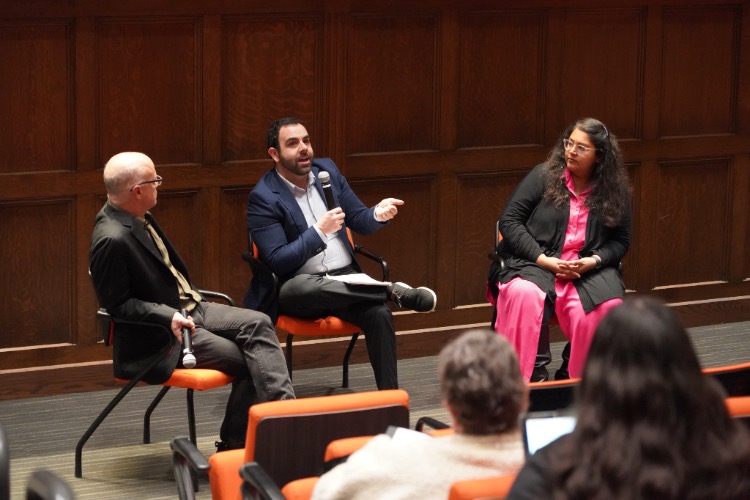
On Wednesday, March 6th, the Young Initiative at Occidental College hosted a talk by Director Omar Shakir from the Human Rights Watch. His talk focused on reporting human rights violations in Israel, the West Bank, and Gaza.
“The first step towards a cure is an accurate diagnosis.”
Omar Shakir currently serves as the Israel and Palestine Director at Human Rights Watch, where he investigates human rights abuses in Israel, the West Bank, and Gaza. He has authored several major reports, including a 2021 report comprehensively documenting how Israeli authorities are committing crimes against humanity of apartheid, and persecution against millions of Palestinians. As a result of his advocacy, the Israeli government deported Omar in November 2019. A former Fulbright Scholar in Syria, Director Shakir holds a JD from Stanford Law School, where he co-authored a report on the civilian consequences of US drone strikes in Pakistan as a part of the International Human Rights & Conflict Resolution Clinic, an MA in Arab Studies from Georgetown University’s School of Foreign Affairs, and a BA in International Relations from Stanford.
At Occidental, Director Shakir discussed the importance of precisely documenting human rights abuses and explained that factual reporting is vital to ensure that real policy changes are enacted. He said that without an accurate diagnosis, there is no possibility of a cure. He discussed his report, entitled A Threshold Crossed, which was crucial in defining actions committed by the Israeli government as apartheid. He explained that legal definitions such as “apartheid” are crucial in describing the events in Gaza because they ensure objectivity so effective legal action can be taken. In his own words, “The U.S. discourse is completely divorced from the facts of what's going on, and we felt the need to call a spade a spade.” Director Shakir then explained how numerous states and human rights organizations including Amnesty International, multiple Israeli human rights organizations, the African Union, and the Arab League have called what is happening in Palestine apartheid, showing how human rights advocacy is greatly impactful and can lead to global shifts in understanding.
Director Shakir concluded his discussion by outlining a personal and collective call to action from the Human Rights Watch. He advocated for humanitarian aid to Palestinians, and an end to war crimes, including collective punishment, indiscriminate attacks, and the bartering over civilian hostages. Finally, he demanded accountability be taken for the actions of Hamas and the Israeli government.
